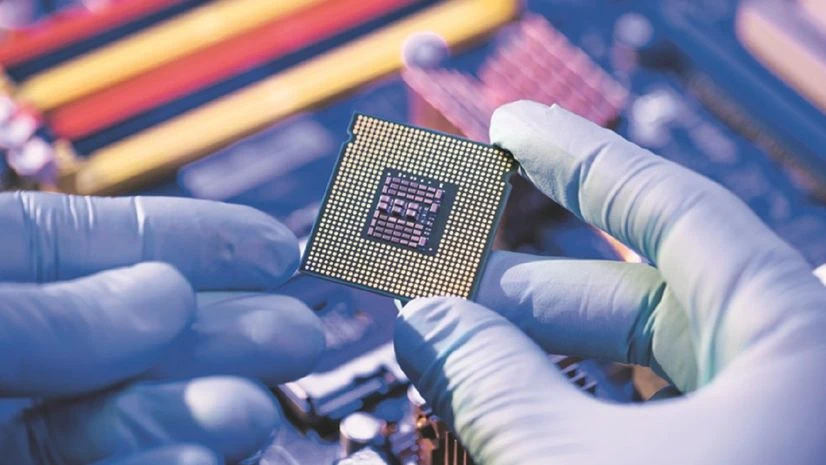In an effort to build talent for the semiconductor industry in India, the India Electronics and Semiconductor Association (IESA) is planning to facilitate sending a batch of people — from industry to academics — on deputation to Singapore in the coming months.
This is part of the recently-announced memorandum of understanding (MoU) with Singapore Semiconductor Industries Association (SSIA).
"What we are looking at is some of the people on deputation to Singapore and the SSIA would support."
These people will spend three to six months in some of the fabs, get some training, come back and implement that in India. So, this is how the overall skill and talent development concept is going to work,” said Ashok Chandak, president, IESA, in an interaction with Business Standard.
According to data from the Ministry of Electronics and IT, the domestic market has around $110 billion semiconductor market opportunity by 2030, and this would be 10 per cent of the global market. However, shortage of skilled manpower is a major issue in the sector.
Also Read
A recent study by TeamLease Degree Apprenticeship said that the semiconductor industry in India is expected to face a shortage of 250,000-300,000 professionals across various verticals by 2027. These include research and development (R&D), manufacturing, design, and advanced packaging.
Under the collaboration between IESA and SSIA, experts and trained professionals from Singapore industries will also come to India. They will train domestic talent in collaboration with member entities of the ISEA.
Further, the Indian semiconductor body is also exploring a similar partnership with its Taiwanese counterparts. However, Singapore is preferred since it has an advantage in terms of language and connectivity, said Chandak.
“One of the challenges we face with Taiwan is the language barrier, particularly at the lower-operator level. At the senior level, most people are proficient in English, so there is no problem there. However, at the operator level, this barrier can be more pronounced. In contrast, this is not a big issue in Singapore, as more people speak English there,” said Chandak.
Under the partnership with SSIA, the two main priority areas will be skilling-training and the technology know-how partnership between Indian and Singaporean firms, said Chandak.
“There are several companies in Singapore which have the knowledge and technology at multiple value-chain levels of semiconductor manufacturing. This is right from design to testing to wafer fab, assembly test marking operations, logistics and distribution. They have got a very good amount of talent and knowledge experience. We want to bring that as part of the partnership. Priority-wise, number one is the skill training, and then business-to-business technology cooperation, technology transfer and joint venture arrangements in the future,” he added.

)